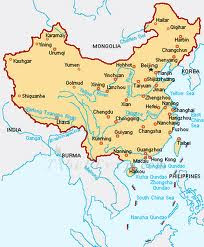February 13, 2011 It was only last week when I heard really important news about the Confucianists wanting to fight the Qin Dynasty. A broad minded man named Gaodi was the one who set up and started this whole war. Xiang ling was killed by the Qin Dynasty during his mission and the Prince Chu sent Xiang Lu and Gaodi to attack and kill the Qin Dynasty.
Gaodi began working with the Confucian scholars to design his new government. Gaodi's government was headed by three ministers. Those ministers were the Excellencies, the military, and the public building projects. When he organized his government, he was confident that he could defeat the Qin Dynasty. He took away Legalism, reduced taxes, and protected the common people. Doing all that made Gaodi a very popular man and it made people like him.
Gaodi and his friends all captured the Qin castle and surrendered it. They went inside and killed the rest of the Emperors. This all happened in Western Han. Also, in Han Zhang, Gaodi studied on his efforts on developing new agricultural methods for people and trained his troops to be better and better for the military power.
After the victory of the Confucianists over the Qin dyansty, he had a big party but didn't go to it because he didn't think it would be a good idea. Soon later, Xiang was chosen as the Prince of Western Chu and Gaodi was chosen as the Prince of Western Han.
In the whole war, there were 560,00 troops attacking each other. And Gaodi was the one who managed and set up the war so his troops could win and be recognized and strong people that work really hard. Without Gaodi, the Confucianists would have never won that war against the Qin Dynasty.






